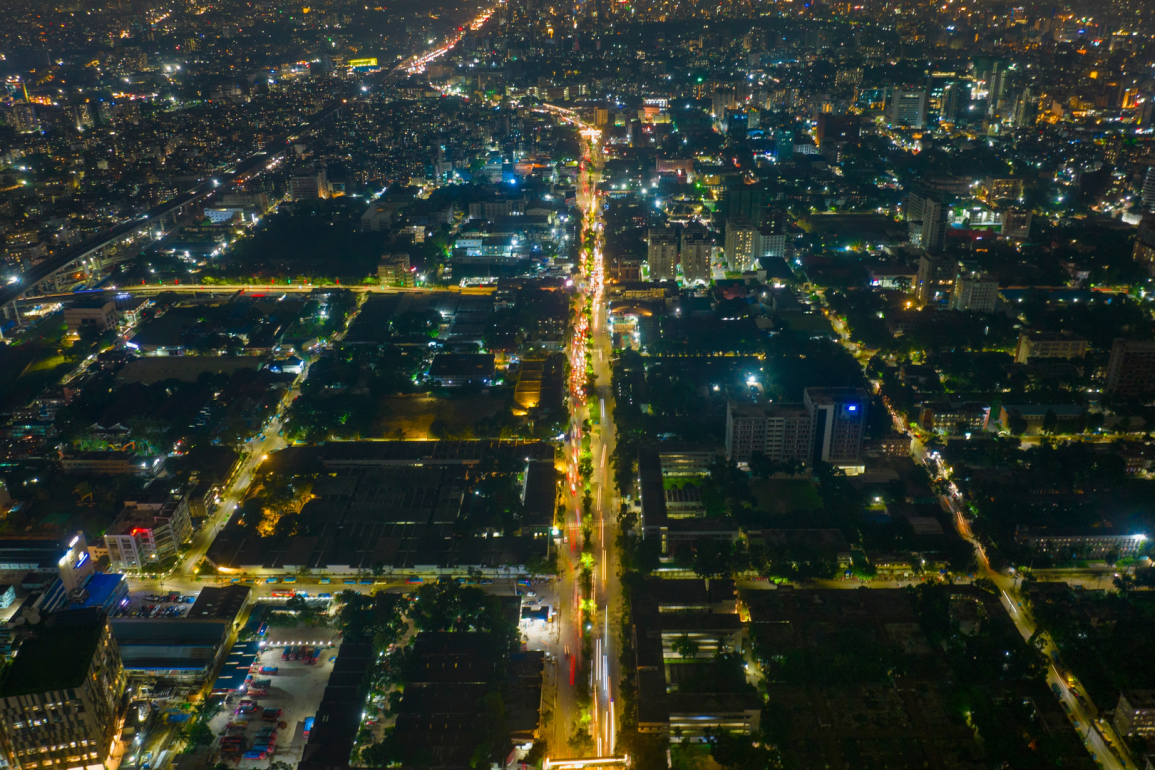Recent research suggests that exposure to outdoor light at night may be linked to an increased prevalence of Alzheimer’s disease, particularly among individuals under 65. The study, funded by the National Institutes of Health and published in Frontiers in Neuroscience, found correlations between high levels of artificial light at night and Alzheimer’s rates in the U.S.
Despite legislative efforts to reduce light pollution in 19 states, the levels of light at night remain high in many regions. The researchers highlighted that while artificial light has its benefits, such as deterring crime and improving road safety, it also has potentially negative consequences on health, behavior, and ecology.
To investigate this connection, the researchers analyzed nighttime light intensity data from satellites and Medicare reports of Alzheimer’s disease from 2012 to 2018. They incorporated other known risk factors for Alzheimer’s, such as diabetes and hypertension, into their analysis.
Although these conditions had stronger links to Alzheimer’s than nighttime light exposure, the researchers found that light pollution was still more strongly associated with Alzheimer’s than factors like alcohol abuse, depression, and obesity. Notably, nighttime light exposure was more strongly linked to Alzheimer’s prevalence in people under 65 than any other risk factor considered in the study.
One of the study’s authors, Dr. Robin Voigt-Zuwala from Rush University Medical Center, explained that younger individuals may be particularly vulnerable to the effects of light exposure at night, especially those living in urban areas.

She suggested that certain genetic factors related to early-onset Alzheimer’s might interact with light exposure, increasing sensitivity. Voigt-Zuwala emphasized the role of light in disrupting circadian rhythms, which regulate sleep and wake cycles. This disruption, she argued, diminishes the body’s resilience, making it more susceptible to diseases like Alzheimer’s.
Experts outside the study, such as Samuel Gandy from Mount Sinai and Dr. Jason Karlawish from the University of Pennsylvania, supported the findings, highlighting the importance of sleep in brain health. Gandy noted that poor sleep quality, which can be exacerbated by nighttime light, is a known risk factor for Alzheimer’s. Karlawish reiterated that good-quality sleep is essential for protecting the brain from dementia over time.
However, both experts acknowledged limitations in the study’s design, including the use of Medicare data, which may not account for long-term exposure to light over a person’s lifetime.
Concerns about the study’s methodology were also raised by David Knopman, a neurologist at the Mayo Clinic. He pointed out that satellite measurements of light exposure may not account for personal factors, such as window coverings or natural daylight exposure.
Additionally, variations in daylight hours between regions of the U.S. could have influenced the results. He also noted that differences in healthcare access between rural and urban areas might skew dementia diagnosis rates, rather than reflecting actual differences in prevalence.
Voigt-Zuwala acknowledged the limitations of the study and stressed the need for further research. She plans to explore how indoor light exposure may contribute to these outcomes and intends to address regional variations in daylight hours in future studies.
While the current study provides insight into the possible role of light pollution in Alzheimer’s disease, more comprehensive studies are required to fully understand its impact. The authors hope that their findings will encourage people to adopt simple lifestyle changes, such as using blackout curtains or wearing sleep masks, to minimize nighttime light exposure.

